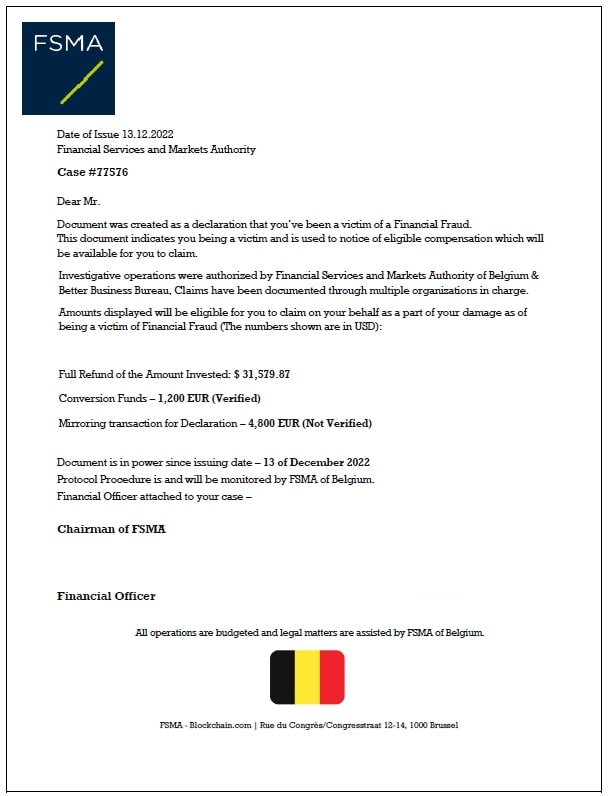Impersonation of legitimate authorities has become rampant as Belgium’s Financial Services and Markets Authority (FSMA) is the latest to warn against such fraudulent tactics. Fraudsters use the regulator’s name and logo to mislead consumers and commit recovery room fraud.
FSMA Warns Against Impersonators
According to the FSMA, fraudsters are impersonating to be regulatory employees and contacting victims of investment fraud with promises of recovering most of their losses. In exchange, these fraudsters ask for a fee from the victims, which is a tactic popularised as recovery room fraud.
Moreover, the Belgian regulator highlighted three email addresses that the fraudsters used to trap victims. These email addresses were carefully devised, even exploiting the domain name, to impersonate the regulator.
“Emails originating from such addresses do not come from the FSMA and must be considered fraudulent. The FSMA advises consumers who receive an email from such an email address not to respond but simply to delete the email,” the regulator stated.
“The fraudsters usurp the identity of the FSMA in an attempt to take money from their victims or to trick them into revealing information. The FSMA has therefore forwarded this information to the judicial authorities.”

Other Regulators Are Also Facing Such Issues
The FSMA is not the only financial market regulator dealing with impersonations. Its Cypriot counterpart, the Cyprus Securities and Exchange Commission (CySEC), also issued multiple similar warnings against impersonators of officials and fake websites. The regulators in the United States, New Zealand, and other jurisdictions are facing similar problems.
On top of that, several legitimate brokers and other financial service providers are struggling with the problem of clones and impersonators. The regulators are actively warning against such fake platforms.
The Belgian regulator further pointed out that it is not authorized to recover lost investments and would never contact victims of investment fraud.
“The FSMA advises consumers to be extremely careful if they receive unsolicited messages and, in particular, not to respond to any requests to transfer money for financial services or products that are supposedly offered by the FSMA. The FSMA is not a financial institution and does not offer consumers any financial services or products,” the FSMA stated.
“The FSMA wishes to emphasize that it never asks consumers to provide their financial information or to pay for any services.”
Huobi HK launches; US approves Eurex BTC Futures; read today's news nuggets.

















